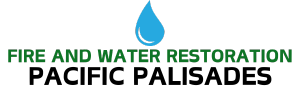Experiencing a fire or flood in your home is incredibly stressful and overwhelming. Knowing exactly what to do immediately after these disasters can significantly mitigate further damage and ensure the safety and well-being of your family. Here’s a comprehensive guide on essential actions to take right after a fire or flood.
Safety First
Before anything else, ensure everyone is safe and accounted for. In the case of a fire, remain outside your home until emergency services declare it safe to re-enter. During a flood, avoid wading through standing water, especially if the electricity is still active, due to the risk of electrocution.
Contact Emergency Services and Authorities
Immediately call emergency services if you haven’t already. For fires, this means contacting the fire department right away, even if you believe the fire has been extinguished. Floods may require contacting local emergency management, especially if evacuation or rescue services are necessary.
Document the Damage
After safety is ensured, documenting the damage is critical. Take clear, comprehensive photos or videos of the damage to your property. Capture the state of rooms, appliances, furniture, walls, ceilings, and personal belongings. Detailed documentation is essential for insurance claims and recovery efforts.
Notify Your Insurance Company
Contact your insurance company as soon as possible. Provide them with your documentation and follow their instructions carefully. Many insurance providers require prompt notification and have specific protocols for disaster-related claims.
Secure Your Property
To prevent further damage, secure your home. In case of a fire, board up windows or doors if necessary to prevent theft or additional damage from weather. For floods, if it’s safe to do so, shut off the electricity and gas at the main switches or valves to avoid further hazards.
Assess Structural Integrity
Do not enter your home until emergency responders or a professional inspector confirms it’s structurally sound. Fires can compromise structural integrity due to weakening of supports and beams, while floods can undermine foundations and floors. Professional assessments are critical before re-entry.
Arrange Temporary Accommodation
If your home is uninhabitable, quickly arrange temporary accommodations. Contact your insurance provider to see if temporary housing costs are covered by your policy. Local disaster relief organizations may also provide assistance in finding short-term shelter.
Begin the Cleanup Process Safely
Once your home is declared safe to enter, you can begin cleanup. For fire damage, ventilate rooms and wear protective gear, including masks and gloves, to avoid inhaling harmful substances. For flood cleanup, remove standing water quickly to prevent mold and further damage. Use pumps or wet vacuums, and always wear waterproof boots and gloves.
Dispose of Damaged Items Appropriately
Separate salvageable items from those that are unsalvageable. Items severely damaged by fire or contaminated by floodwater must often be disposed of according to local regulations. This includes upholstered furniture, carpets, and insulation.
Seek Professional Restoration Services
Engaging professional restoration companies can significantly improve your home’s recovery process. Specialists in fire and water damage restoration have the expertise, tools, and methods to restore your home safely and effectively. They also handle complicated issues like soot removal, smoke odor elimination, and mold remediation.
Address Health Concerns
Both fire and flood scenarios introduce potential health hazards. Smoke inhalation can cause respiratory problems, and floodwaters often contain bacteria, sewage, or chemicals. Consult healthcare providers immediately if family members experience health issues following these events.
Emotional and Psychological Support
The emotional impact of experiencing a disaster should not be overlooked. Stress, anxiety, depression, or trauma can occur after significant property loss or life disruption. Consider counseling or support groups to help cope emotionally and mentally during recovery.
Communicate Clearly with Contractors
When hiring contractors for repairs and restoration, clearly communicate expectations, budgets, timelines, and insurance requirements. Obtain written estimates and contracts to avoid misunderstandings or disputes later.
Prevent Future Incidents
Finally, take steps to protect your home from future fires or floods. Install and regularly test smoke detectors, keep fire extinguishers readily accessible, and consider fire-resistant building materials. For floods, evaluate your home’s drainage system, landscaping, and foundation to ensure proper water runoff and flood protection.
Immediate and organized action following a fire or flood significantly impacts your recovery journey. Prioritize safety, follow structured steps, engage professionals where necessary, and remember that emotional health is as critical as physical restoration.
